 W
WAkkitham Achuthan Namboothiri, popularly known as Akkitham, was an Indian poet and essayist who wrote in Malayalam. He was known for a simple and lucid style of writing, exploring themes of profound love and compassion in his works. Some of his prominent works included Irupatham Noottandinte Ithihasam, Balidarshanam , and Nimisha Kshetram .
 W
WAmarkant was an Indian writer of Hindi literature. His novel Inhin Hathiyaron Se earned him the Sahitya Akademi Award in 2007, and Vyas Samman in year 2009. He was awarded Jnanpith Award for the year 2009. Amarkant is considered as one of the prominent writers of the story writing tradition of Premchand but certainly is credited to add something better in that tradition by his own individuality.
 W
WUdupi Rajagopalacharya Ananthamurthy was an Indian contemporary writer and critic in the Kannada language. He was born in Thirtahalli Taluk and is considered as one of the pioneers of the Navya movement. He is the sixth writer to be honored with the Jnanpith Award for the Kannada language, the highest literary honour conferred in India. In 1998, he received the Padma Bhushan award from the Government of India. He was the vice-chancellor of Mahatma Gandhi University in Kerala during the late 1980s. He was one of the finalists of Man Booker International Prize for the year 2013. He remained a fervent critic of nationalistic political parties until his death from kidney failure and cardiac arrest on 22 August 2014.
 W
WTarasankar Bandyopadhyay was an Indian novelist who wrote in the Bengali language. He wrote 65 novels, 53-story-books, 12 plays, 4 essay-books, 4 autobiographies, 2 travel stories and composed several songs. He was awarded Rabindra Puraskar, Sahitya Akademi Award, Jnanpith Award, Padma Shri and Padma Bhushan.
 W
WDattatreya Ramachandra Bendre, popularly known as Da. Ra. Bendre, was an Indian poet active during the Navodaya period of Kannada literature. He was given the honorific Varakavi. Bendre was awarded the Jnanapita for his 1964 poetry collection, Naaku Tanti. Bendre published most of his work as Ambikatanayadatta. Often mistaken for a pseudonym in the Western sense, Bendre described Ambikatanayadatta as the "universal inner voice" within him that dictated what he (Bendre) then presented in Kannada to the world. He was recognized as the Karnataka Kavi Kula Thilaka by the Udupi Adamuru Matha. He was also awarded the Padma Shri in 1968 and made a fellow of the Sahitya Akademi in 1969.
 W
WRāvūri Bharadvāja was a Jnanpith award winning Telugu novelist, short-story writer, poet and critic. He wrote 37 collections of short stories, seventeen novels, four play-lets, and five radio plays. He also contributed profusely to children's literature. Paakudu Raallu, a graphic account of life behind the screen in film industry, is considered his magnum opus. Jeevana Samaram is another of his popular works.
 W
WBirendra Kumar Bhattacharya was an Indian writer. He was one of the pioneers of modern Assamese literature. He was the first ever Assamese writer to receive the Jnanpith Award, which was awarded to him in the year 1979 for his novel Mrityunjay(Immortal), followed by Indira Goswami in 2001. He was also a recipient of Sahitya Akademi Award in Assamese in 1961 for his Assamese novel Iyaruingam, which is considered a masterpiece of Indian literature. In 2005, a translation of the work published by Katha Books with the title Love in the Time of Insurgency was released. Another famous novel written by Bhattacharya is Aai (Mother).
 W
WRaghuveer Chaudhari is a novelist, poet and critic from Gujarat, India. He has also worked as a columnist for numerous newspapers, such as Sandesh, Janmabhumi, Nirikshaka and Divya Bhaskar. He was a teacher at the Gujarat University until his retirement in 1998. His most significant contributions have been in Gujarati language but he has also written Hindi articles. He received the Sahitya Akademi Award in 1977, for his novel trilogy Uparvas. He received Jnanpith Award, considered to be India's highest literary award, in 2015.
 W
WAshapurna Devi also Ashapoorna Devi or Ashapurna Debi, was a prominent Indian novelist and poet in Bengali. She has been widely honoured with a number of prizes and awards. In 1976, she was awarded Jnanpith Award and the Padma Shri by the Government of India; D.Litt. by the Universities of Jabalpur, Rabindra Bharati, Burdwan and Jadavpur. Vishwa Bharati University honoured her with Deshikottama in 1989. For her contribution as a novelist and short story writer, the Sahitya Akademi conferred its highest honour, the Sahitya Akademi Fellowship, in 1994.
 W
WMahasweta Devi was an Indian writer in Bengali and an activist. Her notable literary works include Hajar Churashir Maa, Rudali, and Aranyer Adhikar. She was a self-proclaimed leftist who worked for the rights and empowerment of the tribal people of West Bengal, Bihar, Madhya Pradesh and Chhattisgarh states of India. She was honoured with various literary awards such as the Sahitya Akademi Award, Jnanpith Award and Ramon Magsaysay Award along with India's civilian awards Padma Shri and Padma Vibhushan.
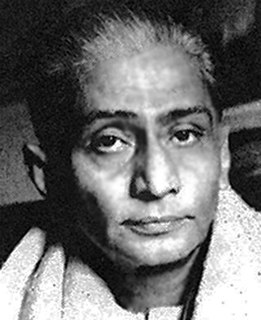 W
WBishnu Dey was a Bengali poet, writer and academician in the era of modernism, post-modernism. Starting off as a symbologist, he won recognition for the musical quality of his poems, and forms the post-Tagore generation of Bengali poets, like Buddhadeb Basu and Samar Sen, which marked the advent of "New Poetry" in Bengali literature, deeply influenced by Marxist ideology. He published a magazine wherein he encouraged socially conscious writing. His own work reveals a poet's solitary struggle, quest for human dignity, amidst a crisis of uprooted identity. Through his literary career, he taught English literature at various institutes such as the Ripon College, Presidency College (1944–1947), Maulana Azad College (1947–1969) and Krishnanagar College. In the 1920s & 1930s, he was also remained a member of a young group of poets, centered on the Kallol (Commotion) magazine.
 W
WRamdhari Singh, known by his nom de plume Dinkar, was an Indian Hindi poet, essayist, patriot and academic, who is considered as one of the most important modern Hindi poets. He remerged as a poet of rebellion as a consequence of his nationalist poetry written in the days before Indian independence. His poetry exuded veer rasa, and he has been hailed as a Rashtrakavi on account of his inspiring patriotic compositions. He was a regular poet of Hindi Kavi sammelan on those days and is hailed to be as popular and connected to poetry lovers for Hindi speakers as Pushkin for Russians.
 W
WAmitav Ghosh is an Indian writer and the winner of the 54th Jnanpith award, best known for his work in English fiction.
 W
WShankha Ghosh is an Indian poet and critic. Ghosh got his undergraduate degree in Arts in Bengali language from the Presidency College, Kolkata in 1951 and subsequently his master's degree from the University of Calcutta in the year 1954.
 W
WVinayaka Krishna Gokak was a major writer in the Kannada language and a scholar of English and Kannada literatures. He was the fifth writer to be honoured with the Jnanpith Award in 1990 for Kannada language, for his epic Bharatha Sindhu Rashmi. Bharatha Sindhu Rashmi deals with the Vedic age and is perhaps the longest epic narrative in any language in the 20th Century. In 1961, Gokak was awarded the Padma Shri from the Government of India for Dyava Prithvi.
 W
WRaghupati Sahay, better known under his pen name Firaq Gorakhpuri, was a writer, critic, and, according to one commentator, one of the most noted contemporary Urdu poets from India. He established himself among peers including Muhammad Iqbal, Yagana Changezi, Jigar Moradabadi and Josh Malihabadi.
 W
WIndira Goswami, known by her pen name Mamoni Raisom Goswami and popularly as Mamoni Baideo, was an Indian editor, poet, professor, scholar and writer.
 W
WQurratulain Hyder was an Indian Urdu novelist and short story writer, an academic, and a journalist. One of the most outstanding and influential literary names in Urdu literature, she is best known for her magnum opus, Aag Ka Darya, a novel first published in Urdu in 1959, from Lahore, Pakistan, that stretches from the 4th century BC to post partition of India.
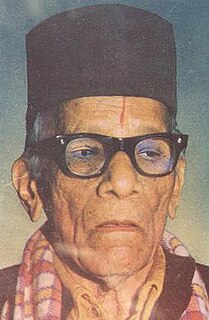 W
WMasti Venkatesha Iyengar was a well-known writer in Kannada language. He was the fourth among Kannada writers to be honored with the Jnanpith Award, the highest literary honor conferred in India. He was popularly referred to as Maasti Kannadada Aasti which means "Maasti, Kannada's Treasure". He is most renowned for his short stories. He wrote under the pen name Srinivasa. He was honoured with the title Rajasevasakta by then Maharaja of Mysore Nalvadi Krishnaraja Wadeyar.
 W
WD. Jayakanthan, popularly known as JK, was an Indian writer, journalist, orator, film-maker, critic and activist. Born in Cuddalore, he dropped out of school at the age of 9 and went to Madras, where he joined the Communist Party of India. In a career spanning six decades, he authored around 40 novels, 200 short stories, apart from two autobiographies. Outside literature, he made two films. In addition, four of his other novels were adapted into films by others.
 W
WUmashankar Jethalal Joshi was an Indian poet, scholar and writer known for his contribution to Gujarati literature.
 W
WChandrashekhara Kambara is a prominent Indian poet, playwright, folklorist, film director in Kannada language and the founder-vice-chancellor of Kannada University in Hampi also president of the Sahitya Akademi, country's premier literary institution, after Vinayak Krishna Gokak (1983) and U.R. Ananthamurthy (1993). He is known for effective adaptation of the North Karnataka dialect of the Kannada language in his plays, and poems, in a similar style as in the works of D.R. Bendre.
 W
WKota Shivarama Karanth was an Indian polymath, who was a novelist in Kannada language, playwright and an ecological conservationist. Ramachandra Guha called him the "Rabindranath Tagore of Modern India, who has been one of the finest novelists-activists since independence". He was the third writer to be decorated with the Jnanpith Award for Kannada, the highest literary honor conferred in India. His son Ullas is an ecological conservationist.
 W
WGirish Karnad was an Indian actor, film director, Kannada writer, playwright and a Rhodes Scholar, who predominantly worked in South Indian cinema and Bollywood. His rise as a playwright in the 1960s marked the coming of age of modern Indian playwriting in Kannada, just as Badal Sarkar did in Bengali, Vijay Tendulkar in Marathi, and Mohan Rakesh in Hindi. He was a recipient of the 1998 Jnanpith Award, the highest literary honour conferred in India.
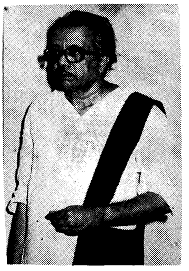 W
WRavindra Kelekar was a noted Indian author who wrote primarily in the Konkani language, though he also wrote in Marathi and Hindi. A Gandhian activist, freedom fighter and a pioneer in the modern Konkani movement, he is a well known Konkani scholar, linguist, and creative thinker. Kelkar was a participant in the Indian freedom movement, Goa's liberation movement, and later the campaign against the merger of the newly formed Goa with Maharashtra. He played a key role in the founding of the Konkani Bhasha Mandal, which lead the literary campaign for the recognition of Konkani as a full-fledged language, and its reinstatement as the state language of Goa. He authored nearly 100 books in the Konkani language, including Amchi Bhas Konkaneech, Shalent Konkani Kityak, Bahu-bhashik Bharatant Bhashenche Samajshastra and Himalayant, and also edited Jaag magazine for more than two decades.
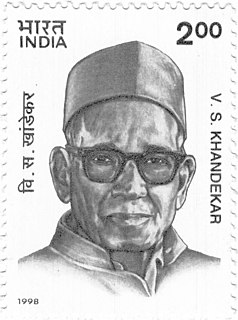 W
WVishnu Sakharam Khandekar was a Marathi writer from Maharashtra, India. He was the first Marathi author to win the prestigious Jnanpith Award.
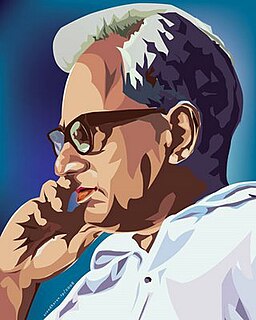 W
WG. Sankara Kurup, better known as Mahakavi G, was an Indian poet, essayist and literary critic of Malayalam literature. Known as one of the greats of Malayalam poetry, he was the first recipient of the Jnanpith Award―the highest Indian literary honor. He served as a nominated member of the Rajya Sabha from 1968 to 1972 and received the Padma Bhushan, the third highest Indian civilian award, in 1967. He was also a recipient of Sahitya Akademi Award, Kerala Sahitya Akademi Award and Soviet Land Nehru Award.
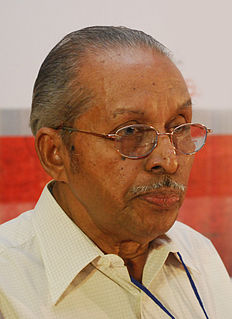 W
WOttaplakkal Neelakandan Velu Kurup was a Malayalam poet and lyricist from Kerala, India, who won the Jnanpith Award, the highest literary award in India for the year 2007. He received the awards Padma Shri in 1998 and Padma Vibhushan in 2011, the fourth and second highest civilian honours from the Government of India. In 2007 he was awarded an Honorary Doctorate by University of Kerala, Trivandrum. O. N. V. was known for his leftist leaning. He was a leader of All India Students Federation (AISF). He died on 13 February 2016 at KIMS hospital in Thiruvananthapuram due to age-related illnesses, aged 84.
 W
WVishnu Vāman Shirwādkar, popularly known by his pen name, Kusumāgraj, also known as Vi. Vā. Shirwadkar, was an eminent Marathi poet, playwright, novelist, short story writer, apart from being a humanist, who wrote of freedom, justice and emancipation of the deprived, In a career spanning five decades starting in pre-independence era, he wrote 16 volumes of poems, three novels, eight volumes of short stories, seven volumes of essays, 18 plays and six one-act plays. His works like the Vishakha (1942), a collection of lyrics, inspired a generation into the Indian freedom movement, and is today considered one of the masterpieces of Indian literature, apart from his play, Natsamrat, which has an important place in Marathi literature. He was the recipient of several State awards, and National awards including the 1974 Sahitya Akademi Award in Marathi for Natsamrat, Padma Bhushan (1991) and the Jnanapith Award in 1987; he also served as the President of the Akhil Bharatiya Marathi Sahitya Sammelan held at Margao in 1964.
 W
WKuppali Venkatappa Puttappa, popularly known by his pen name Kuvempu, was an Indian novelist, poet, playwright, and critic. He is widely regarded as the greatest Kannada poet of the 20th century. He was the first Kannada writer to be by decorated with the Jnanpith Award.
 W
WSitakant Mahapatra is an eminent Indian poet and literary critic in Odia as well as English. He was in the Indian Administrative Service (IAS) since 1961 until retiring in 1995, and has held ex officio posts such as the Chairman of National Book Trust, New Delhi since then.
 W
WGopinath Mohanty (1914–1991), winner of the Jnanpith award, and the first winner of the National Sahitya Akademi Award in 1955 - for his novel, Amrutara Santana - was a prolific Odia writer of the mid-twentieth century. Satya Prakash Mohanty, Professor of English, Cornell University says: "In my opinion, Gopinath Mohanty is the most important Indian novelist in the second half of the twentieth century."
 W
WSubhash Mukhopadhyay was one of the foremost Indian Bengali poets of the 20th century. He is also known as the "podatik kobi" in the field of Bengali literature. A book of thirty of Subhash's best known poems in English translation, titled ' As Day is Breaking', was published in 2014 by Anjan Basu,a Bangalore-based writer/critic. The book includes a rather detailed introduction to the poet's work as well. He was honoured with Jnanpith Award in 1991.
 W
WMadath Thekkepaattu Vasudevan Nair, popularly known as MT, is an Indian author, screenplay writer and film director. He is a prolific and versatile writer in modern Malayalam literature, and is one of the masters of post-Independence Indian literature. He was born in Kudallur, a small village in the present day Anakkara panchayath in Pattambi Taluk, Palakkad district (Palghat), which was under the Malabar District in the Madras Presidency of the British Raj. He shot into fame at the age of 20 when, as a chemistry undergraduate, he won the prize for the best short story in Malayalam at World Short Story Competition conducted by The New York Herald Tribune. His debut novel Naalukettu, wrote at the age of 23, won the Kerala Sahitya Akademi Award in 1958. His other novels include Manju (Mist), Kaalam (Time), Asuravithu and Randamoozham. The deep emotional experiences of his early days have gone into the making of MT's novels. Most of his works are oriented towards the basic Malayalam family structure and culture and many of them were path-breaking in the history of Malayalam literature. His three seminal novels on life in the matriarchal family in Kerala are Naalukettu, Asuravithu, and Kaalam. Randamoozham, which retells the story of the Mahabharatha from the point of view of Bhimasena, is widely credited as his masterpiece.
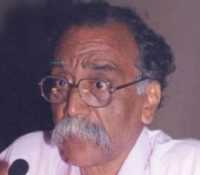 W
WBhalchandra Vanaji Nemade is an Indian Marathi language writer, poet, critic and linguistic scholar. Beginning with his debut novel Kosala, Nemade brought new dimensions to the world of Marathi literature. This was followed by a tetralogy consisting of novels Bidhar, Hool, Jareela and Jhool. In 2013, Nemade published his magnum opus titled Hindu: Jagnyachi Samruddha Adgal which is regarded as his masterpiece. Nemade is a recipient of the Sahitya Akademi Award as well as the Jnanapith Award, the highest literary honour in India. In 2013, he was awarded the Padma Shri.
 W
WSumitranandan Pant was an Indian poet. He was one of the most celebrated 20th century poets of the Hindi language and was known for romanticism in his poems which were inspired by nature, people and beauty within.6 hours after childbirth, and it appears he did not seek affection from his grandmother, father, or older brother, which later influenced his writing. His father served as the manager of a local tea garden, and was also a landholder, so Pant was never in want financially growing up. He grew up in the same village and always cherished a love for the beauty and flavor of rural India, which is evident in all his major works.
 W
WThakazhi Sivasankara Pillai, popularly known as Thakazhi after his place of birth, was an Indian novelist and short story writer of Malayalam literature. He wrote over 30 novels and novellas and over 600 short stories focusing on the lives of the oppressed classes. Known for his works such as Kayar and Chemmeen, Pillai was a recipient of the Padma Bhushan, the third highest Indian civilian award. He was also a recipient of the Jnanpith, India's highest literary award, awarded in 1984 for the novel Kayar.
 W
WSankaran Kutty Kunjiraman Pottekkatt, popularly known as S. K. Pottekkatt, was an Indian writer of Malayalam literature and a politician from Kerala, India. He was also a great traveller among the Keralites, who wrote many travelogues for the people who have been unintroduced to the outside world. He was the author of nearly sixty books which include ten novels, twenty-four collections of short stories, three anthologies of poems, eighteen travelogues, four plays, a collection of essays and a couple of books based on personal reminiscences. he was a recipient of Kerala Sahitya Akademi Award for Novel, Sahitya Akademi Award and the Jnanpith Award. His works have been translated into English, Italian, Russian, German and Czech, besides all major Indian languages.
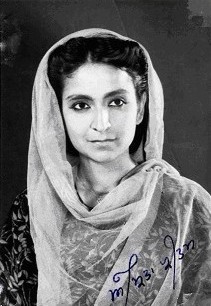 W
WAmrita Pritam; listen (help·info); 31 August 1919 – 31 October 2005) was an Indian novelist, essayist and poet, who wrote in Punjabi and Hindi. She is considered the first prominent female Punjabi poet, novelist, essayist and the leading 20th-century poet of the Punjabi language, who is equally loved on both sides of the India–Pakistan border. With a career spanning over six decades, she produced over 100 books of poetry, fiction, biographies, essays, a collection of Punjabi folk songs and an autobiography that were all translated into several Indian and foreign languages.
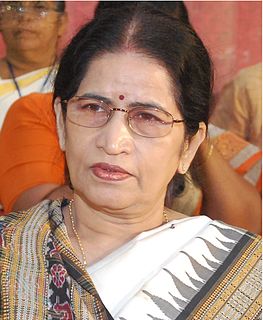 W
WPratibha Ray is an Indian academic and writer of Odia-language novels and stories. She received the Moortidevi Award in 1991.
 W
WCingireddi Narayana Reddy was an Indian Telugu-language poet and writer. Reddy had produced over eighty literary works including poems, prose-plays, lyrical plays, translations, and ghazals. He was also a professor, lyricist, actor, and politician.
 W
WViswanatha Satyanarayana was a 20th century Telugu writer. His works included poetry, novels, dramatic play, short stories and speeches, covering a wide range of subjects such as analysis of history, philosophy, religion, sociology, political science, linguistics, psychology and consciousness studies, epistemology, aesthetics and spiritualism. He was a student of the illustrious Telugu writer Chellapilla Venkata Sastry, of the Tirupati Venkata Kavulu duo. Viswanatha's wrote in both a modern and classical style, in complex modes. His popular works include Ramayana Kalpa Vrukshamu, Kinnersani Patalu and the novel Veyipadagalu. Among many awards, he was awarded the Jnanpith Award in 1970, the first for a Telugu writer, and Padma Bhushan in 1971.
 W
WRajendra Keshavlal Shah was a lyrical poet who wrote in Gujarati. Born in Kapadvanj, he authored more than 20 collections of poems and songs, mainly on the themes of the beauty of nature, and about the everyday lives of indigenous peoples and fisherfolk communities. In his poems using Sanskrit metrics, he was influenced by Rabindranath Tagore. He is considered as one of the giants of post Gandhi-era in Gujarati literature.
 W
WSatya Vrat Shastri is a highly decorated Sanskrit scholar, writer, grammarian and poet from India. He has written three Mahakavyas, three Khandakavyas, one Prabandhakavyas and one Patrakavya and five works in critical writing in Sanskrit. His important works are Ramakirtimahakavyam, Brahattaram Bharatam, Sribodhisattvacharitam, Vaidika Vyakarana, Sarmanyadesah Sutram Vibhati, and "Discovery of Sanskrit Treasures" in seven volumes.
 W
WShrilal Shukla was a Hindi writer, notable for his satire. He worked as a PCS officer for the state government of Uttar Pradesh, later inducted into the IAS. He has written over 25 books, including Raag Darbari, Makaan, Sooni Ghaati Ka Sooraj, Pehla Padaav and Bisrampur Ka Sant.
 W
WKedarnath Singh was an Indian poet who wrote in Hindi. He was also an eminent critic and essayist. He was awarded the Jnanpith Award (2013), Sahitya Akademi Award (1989) in Hindi for his poetry collection, Akaal Mein Saras.
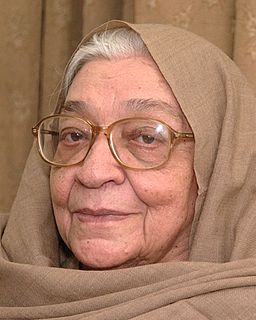 W
WKrishna Sobti was an Indian Hindi-language fiction writer and essayist. She won the Sahitya Akademi Award in 1980 for her novel Zindaginama and in 1996, was awarded the Sahitya Akademi Fellowship, the highest award of the Akademi. In 2017, she received the Jnanpith Award for her contribution to Indian literature.
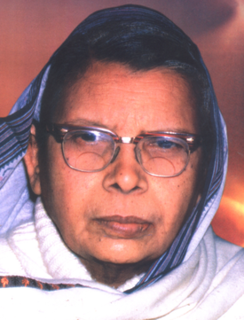 W
WMahadevi Verma was a Hindi poet, freedom fighter and educationist from India. She was a major poet of the "Chhayavaad", a literary movement of romanticism in modern Hindi poetry ranging from 1914–1938 and a prominent poet in Hindi Kavi sammelans.
 W
WSachchidananda Hirananda Vatsyayan, popularly known by his nom de plume Agyeya, was an Indian writer, poet, novelist, literary critic, journalist, translator and revolutionary in Hindi language. He pioneered modern trends in Hindi poetry, as well as in fiction, criticism and journalism. He is regarded as the pioneer of the Prayogavaad (experimentalism) movements in modern Hindi literature.
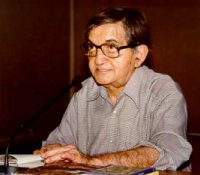 W
WNirmal Verma was a Hindi writer, novelist, activist and translator. He is credited as being one of the pioneers of the Nai Kahani literary movement of Hindi literature, wherein his first collection of stories, Parinde (Birds) is considered its first signature.